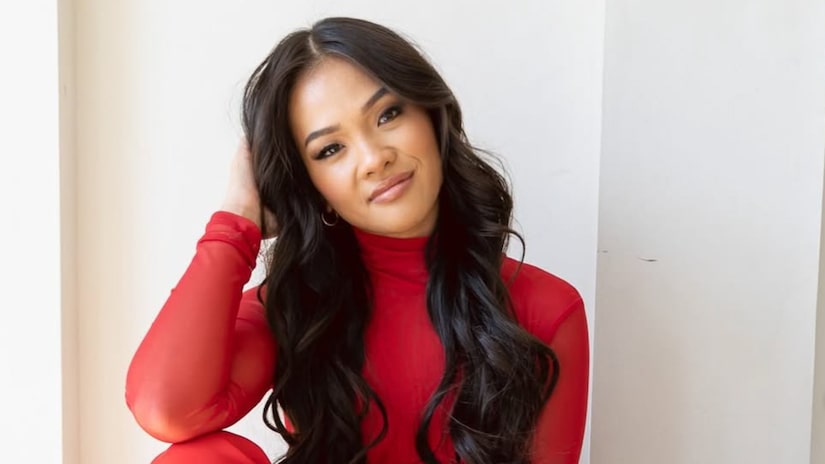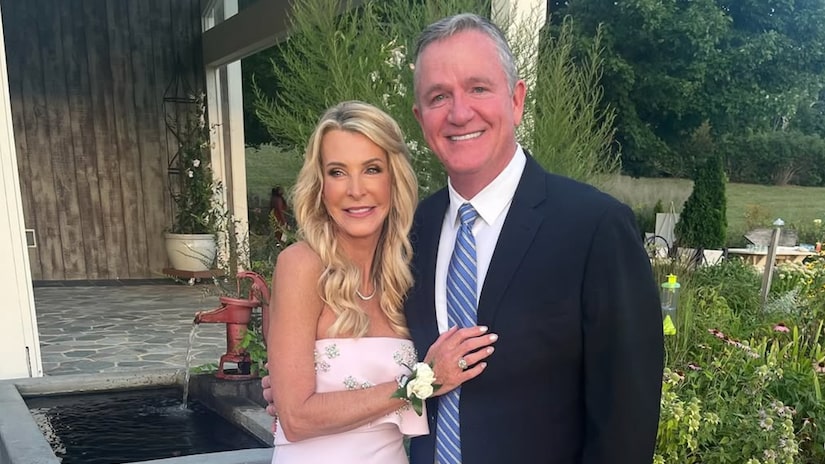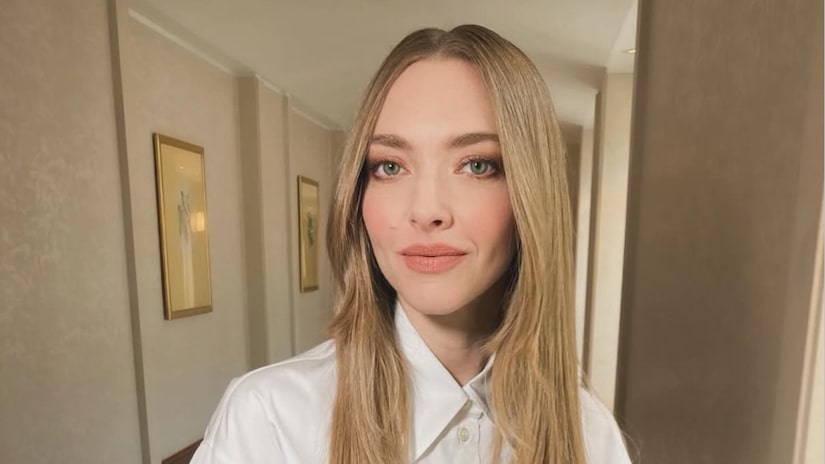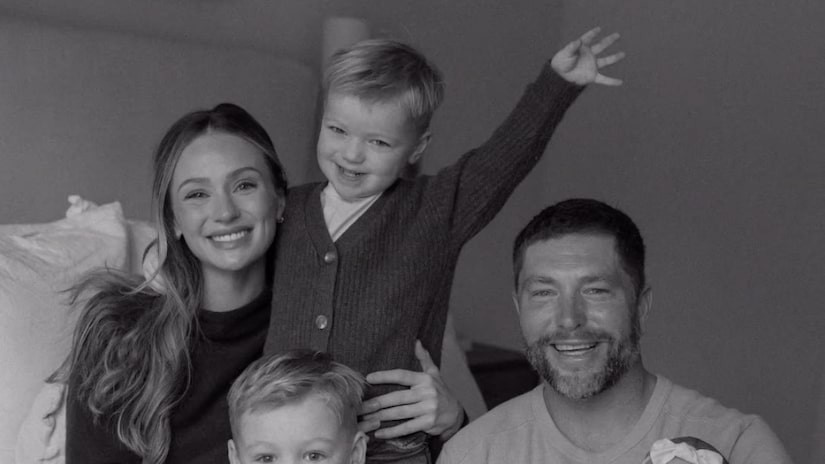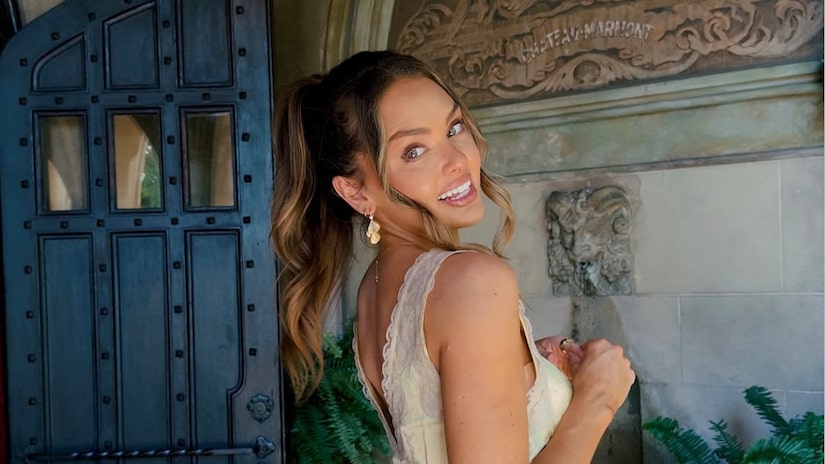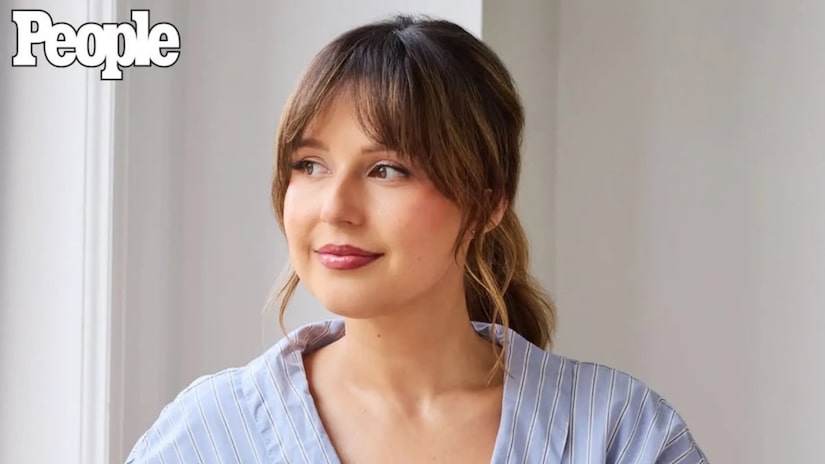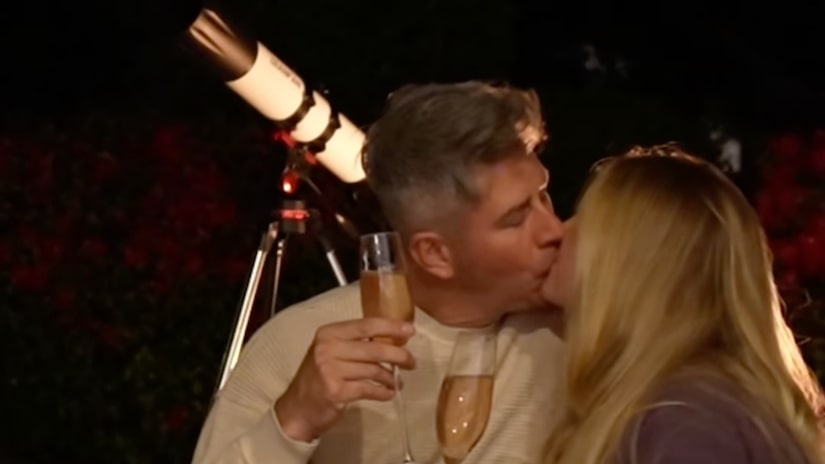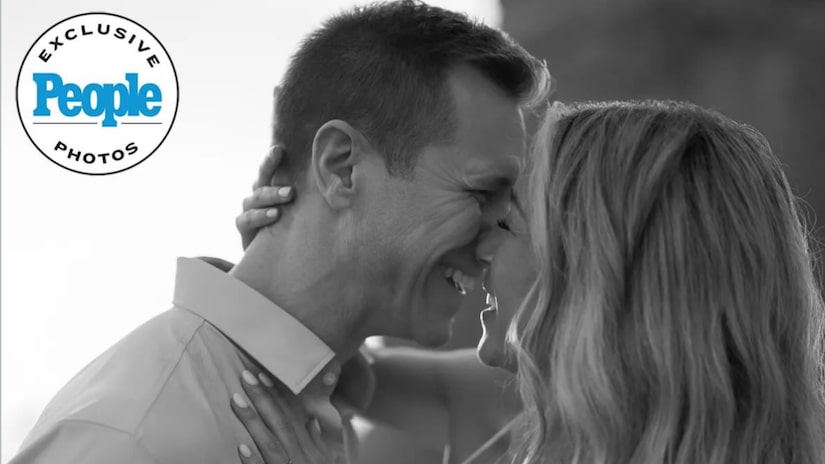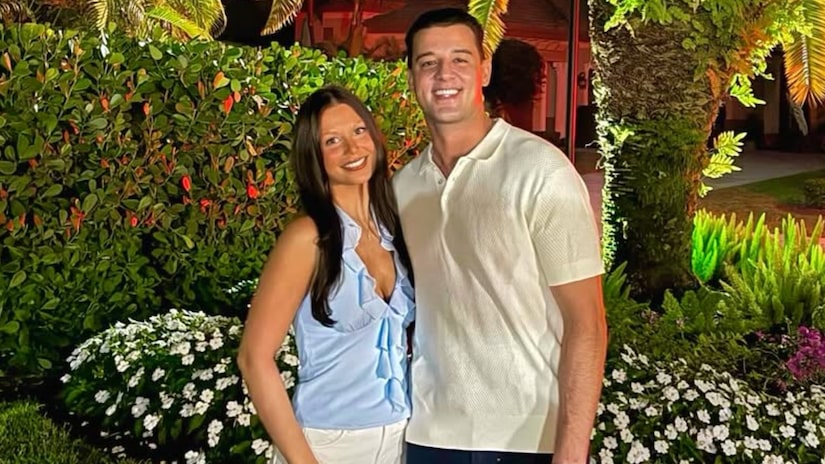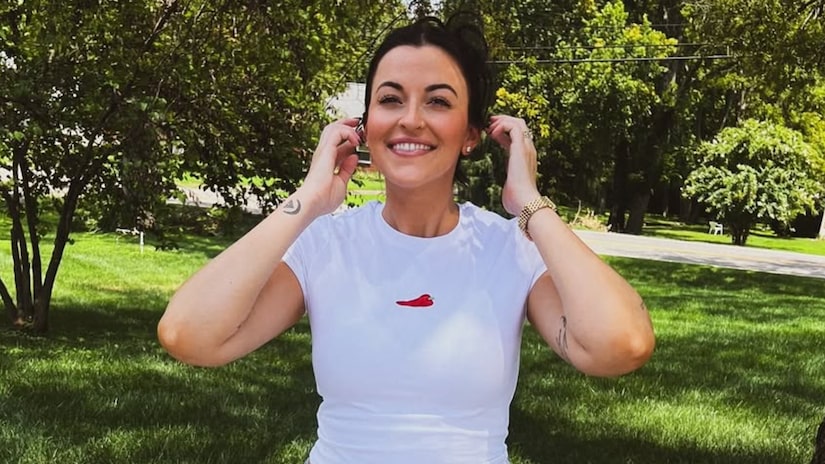April 16, 2021 bachelor insider
Zac Clark on Overcoming Addiction and Taking 'Pride' in His 'Bachelorette' Love Story with Tayshia Adams
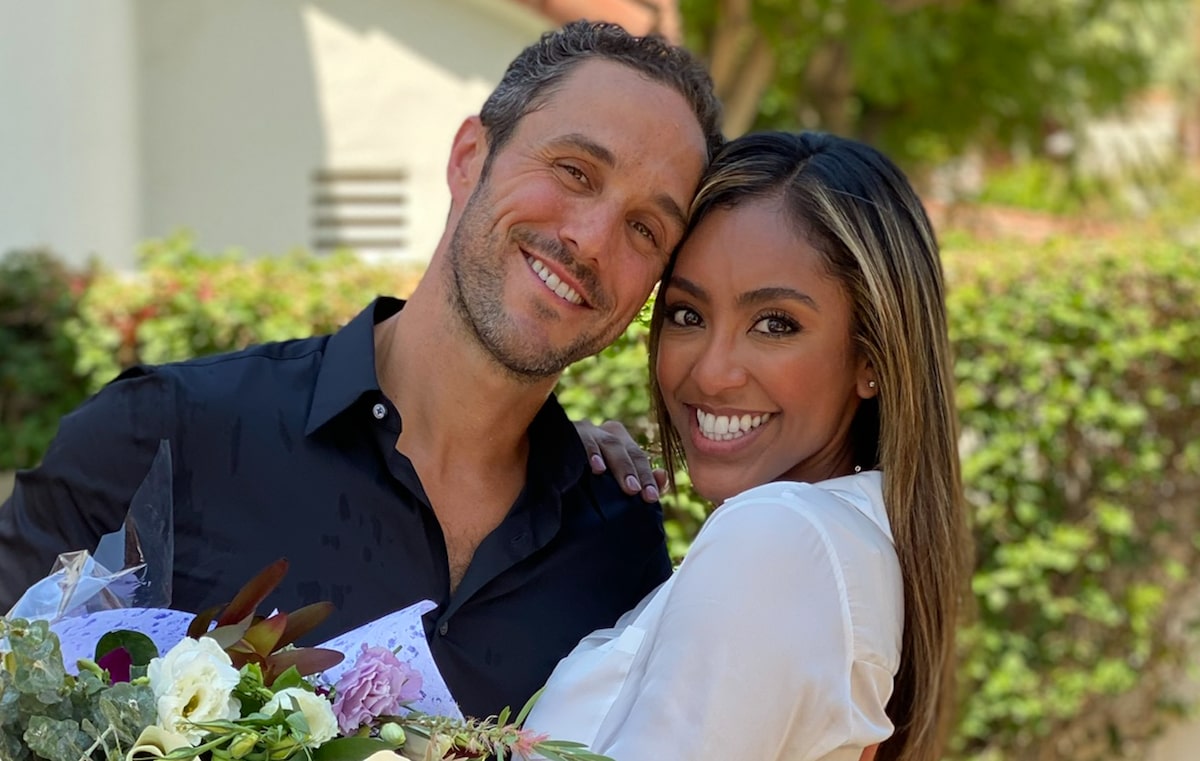
Nearly a decade has passed since Zac Clark got high for the last time.
In August 2011, the beloved star of “The Bachelorette” Season 16 — who bravely shared his story of addiction and recovery with now-fiancée Tayshia Adams and, subsequently, millions of viewers — completed a second and successful round of rehab at Pennsylvania’s Caron Treatment Center.
“Today, I live a life beyond my comprehension,” Zac tells BachelorNation.com in an exclusive interview. “I try to be whatever shining light I can for people who are getting sober. I want to make it clear to them that getting clean is not a punishment. Look at all the cool s--t I’ve done because of my sobriety. It’s been a wild ride, for sure.”
Prior to winning Tayshia’s final rose in 2020, the handsome New Jersey native won his battle with substance abuse thanks to the support he received from his loved ones — as well as the unlikely intercedence of a bank teller named Rhonda Jackson. Days after disappearing from a family vacation, Zac turned up at a bank, where he attempted to forge a check stolen from his father in order to get money for drugs.
“Rhonda was an angel and truly saved my life. She knew something was wrong,” Zac recounts. “Instead of calling the police, she called my dad, who came to get me before I could disappear back into the streets. Two days later, I was in rehab for the second time, which worked. I can’t wait to hopefully celebrate 10 years of sobriety later this year.”
Waiting for your permission to load the Instagram Media.
In the midst of his own recovery, Zac co-founded Release Recovery, a full-service organization in New York with more than 40 employees, which recently launched a nonprofit foundation to help individuals struggling with addiction in underserved communities.
This past weekend, the former athlete participated in the Goggins Challenge — running four miles every four hours within the span of two days alongside nine teammates — and raised $65,000 to help fund scholarships for disadvantaged addicts to enter treatment.
“This weekend wouldn’t have been as successful as it was without Bachelor Nation,” says Zac, noting that the event convened franchise fans, running enthusiasts, and members of the sober community alike. “I would be a fool to not recognize that support. The people who came out from Bachelor Nation this weekend were pure, authentic, and really just wanted to help.”
Reflecting on his “Bachelorette” journey, Zac says he is grateful for an array of reasons. At the top of his list, he feels lucky to have found The One. And, of course, he is thrilled at the opportunity to connect with others who relate to his experience with addiction. Also included is the unexpected “pride” he felt watching his love story with Tayshia play back on screen, signaling a permanently bright future.
“I was really proud of myself. That’s not an easy thing for me to say. Watching it back, I really feel like the guy who America was meeting is who I am. That was really reassuring to me,” says Zac, who now lives in New York City with Tayshia. “To be able to sit back and watch myself smile with her by my side was emotional.”
Zac recently appeared on Mike Johnson and Bryan Abasolo’s “Talking It Out” podcast, during which he spoke about his commitment to clean living (listen below). Read on for even more from Zac, who told BachelorNation.com how he transformed tough times into triumphs.
After completing the Goggins Challenge, how would you describe your relationship with running? Is it a helpful tool in maintaining your sobriety?
Yeah. I used to be super competitive, and I used to play sports growing up. At one point, I would consider myself a jock. But running has become an outlet for me to put the phone on airplane mode, go out, reset, and look inward. I love long-distance running because I get into a zone an hour or two into it where I begin to reflect. So, yes, it’s absolutely a tool for me. Whenever I’m jammed up, it’s one of my go-tos to step away, burn off some steam, and then come back to the situation — whatever it might be.
Waiting for your permission to load the Instagram Media.
Does Tayshia enjoy running with you?
(Laughs) We’re getting there! We’ve probably run together five or six times. It’s been tough because, obviously, she’s away filming for “The Bachelorette” Season 17 right now. There’s been quite a bit of travel. When she was in New York, it was freezing cold out. So, the hope is when she lands back here in May, there’ll be some more of us running together.
When you first found out you had been cast on “The Bachelorette,” did you go into it knowing you wanted to share your story about addiction and recovery?
It’s just who I am. I have brown hair, I’m 6 foot tall, and I’m also in recovery. It’s just another piece of me. If this opportunity were to come along five, six, or eight years ago, when I was more newly sober, some of those assumed worries might be there. But, for me, I just viewed it as an opportunity to step outside my comfort zone and take a risk. At the end of the day, I was interested in finding someone. Dating in New York sucks. So, I said, “F--k it. Let’s just try something new.” I didn’t have a lot of fear because I learned that people who judge who I am, I don’t need them in my life.
On the show, you told Tayshia how much it meant for your parents to see you so happy after everything you had gone through as a family before the show. How did it feel to see yourself happy watching your love story with Tayshia play back?
That was the more surreal part. Not a lot of people have asked me that, so I appreciate it. Life is crazy and short and, especially in New York, it moves fast. I was allowing my mother, father, and brother to see that evolution firsthand in person. And then reliving it on TV was really special to me because it helped me think back to the sleepless nights and the times where they didn’t know where I was, if I was coming home, or if I was alive. So, for me to be able to sit there and tell my mother in front of millions of people how much she means to me was huge. I’m proud of how far I’ve come. Like I said, it isn’t easy to admit, but it’s true. I am.
Tayshia was so receptive when you shared your story of addiction. What did her response mean to you at the time and what does her support mean to you now, months into your engagement?
Her receptiveness at the time was vital to us continuing to see what was there. If she wasn’t receptive, there would have been no way it could work. I would have been at peace with it because I need to be with someone who is receptive. I would have given her the opportunity to get there if she wasn’t. But, in the moment, she was and it was everything. And her support now also means so much to me. I will tell you that in the real world, she’s probably learning even more about my sobriety and how important it is. It’s really the cornerstone of my existence and I’ve explained to her many times that it’s all because of my sobriety: “My sobriety and my recovery allowed me to come date you on national television and start a business and have a livelihood.” She’s starting to really understand the importance of it in my life.
Waiting for your permission to load the Instagram Media.
After nearly 10 years of sobriety, how do you handle harsh judgments or negative responses to your past?
Look, I’ve seen the comments on Instagram, the stuff like “once a crackhead, always a crackhead” and “Tayshia, don’t date a drug addict. I dated a drug addict and he was full of s--t.” I work really hard not to fall victim to the one comment when there’s nine other really positive, encouraging comments out there. I’ve gotten really good at swipe-delete, I say, and not giving that negativity more power than it deserves. I remind myself all the time that the good outweighs the bad.
Because of your time on “The Bachelorette,” you have become a leading voice in the sober community. People look to you as an expert. How are you processing that? Do you feel any sort of pressure?
That’s one of the things I’m really working through personally. I’m hard on myself. I’m a Capricorn. I’m a very get-it-done kind of guy. And I want to help everyone. I had to realize that I might not be able to respond to every DM and I might not be able to respond to every email. But that doesn’t mean I’m not a good person. It doesn’t mean that I’m not trying. To be honest with you, I’m developing a system with my team to help field those requests because we do want to help everyone who needs it. And then being a voice for the recovery community, yeah, there’s some pressure there because I’m not perfect. If I make a mistake or if I do something out of character, whatever it is, and it gets picked up, does that mean recovery doesn’t work? It’s almost this pressure of having to be perfect.
You’re inundated with supportive social media messages from people who have been touched by your story. How do they impact you?
This weekend, at the Goggins Challenge, I had a heavy one. There’s a woman up in Massachusetts and we’ve written back and forth several times. She shared her story and I told her, “Hang in there, take care of yourself.” This weekend, out of nowhere, this woman comes up, holding her dog, and she’s like, “Zac, I’m Denise. I just drove down from Massachusetts. We’ve been going back and forth.” It took me a minute to put it together. And she’s like, “Knowing that you were going to be here, I had to come down and personally thank you. You’ve singlehandedly pulled me out of this deep depression.” It was almost too heavy to even comprehend. I’m starting to see it more and more. There’s a guy that I’m kind of mentoring now who had reached out. So, these stories are starting to pile up and it’s all feel-good s--t from Bachelor Nation. It’s unbelievable.
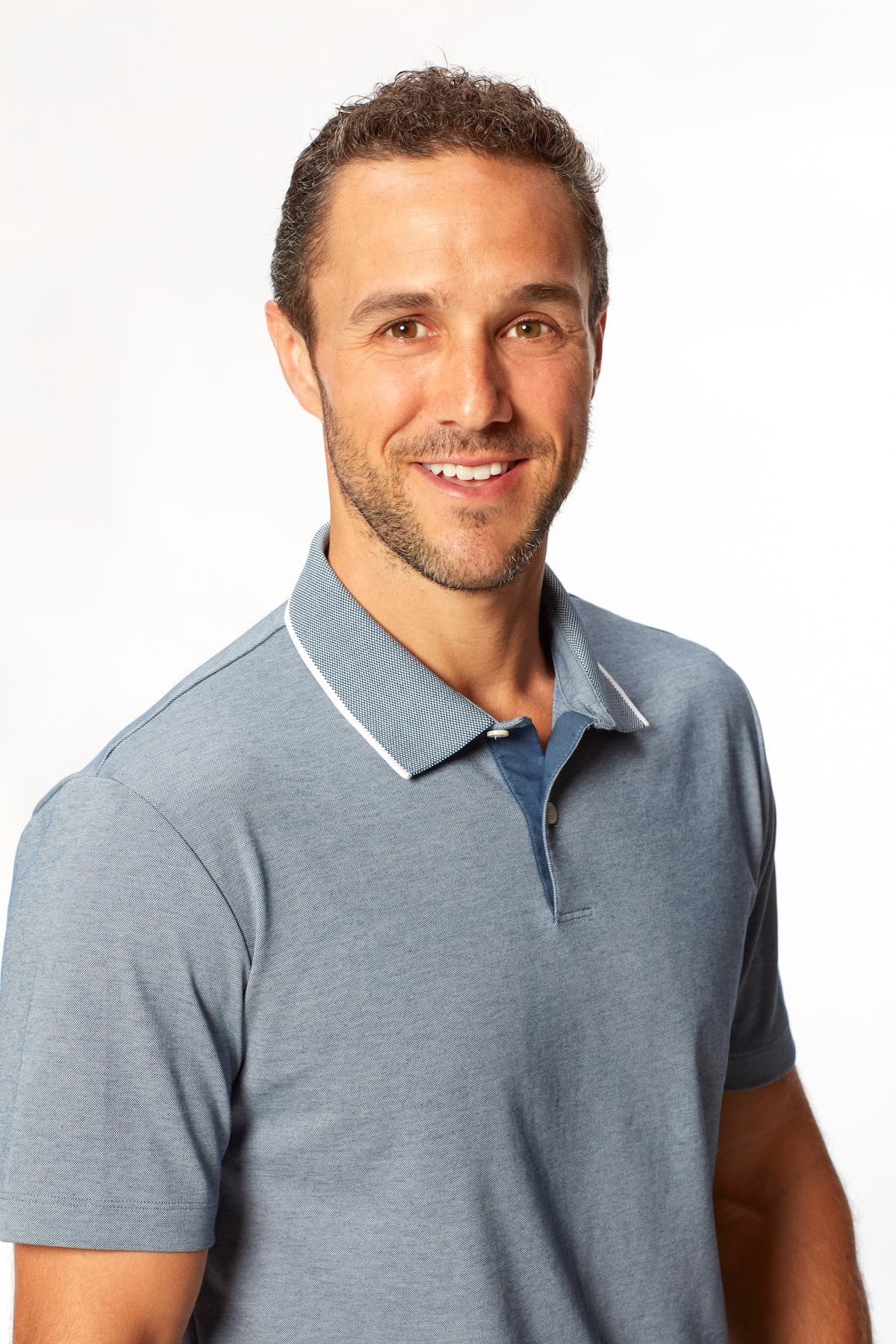
Aside from being sober, how have you changed over the last decade?
I definitely am less reactive. I know this didn’t come through on the show, but I’m a pretty fiery guy and I have been for most of my life. Just growing up playing team sports, I was always competing. It was always about winning for me. And I just view life differently. Living in New York as well, being in this melting pot of humans and seeing this part of the world, has been so eye-opening. I just have more experience, so I don’t react as much. I tend to pause and be patient and understand that it’s never as good as it seems and it’s never as bad as it seems. That’s what I’ve learned in life.
If you could sit down with a pre-sober Zac Clark, what message of hope would you share with him?
Probably just what I tell people now: “You’re worth it and you’re loved.” That’s really the message that I had to hear. “You’re worth it, you’re loved, and hang in there because it’s going to get better.” I want to say I would scream at myself, like, “What the hell are you doing?” But I know that doesn’t work.
You went to rehab for the first time in 2010 but ultimately relapsed. How would you describe that time in your life?
The first time around I was not ready. I just wasn’t. I went there to save a marriage with my now-ex-wife and I went there to ease my family’s nerves because this information had just come through. I didn’t listen. I didn’t listen to anything that was told to me and I wasn’t honest. You have to be honest with yourself. Even seeing Colton Underwood able to get honest with himself and come out as gay this week, that is so relevant to my own story. I was not able to wrap my head around the fact that I am a drug addict, I cannot use drugs, or drink safely. I just can’t do it. That first time around, I wasn’t able to own that. Coming out of that experience, I knew deep down inside that I still had some “research and development” — what I like to call it — to do. I had to go out and experiment some more.
What worked during your second time in treatment?
After my first round of treatment, I got to a place where I’m running around Camden, New Jersey, and my drug use progressed to a point where I’m using IV drugs and smoking crack. It was gnarly. I was just beaten. I was knocked on my ass. It was definitely touch and go. I don’t know how much longer I would have made it. With an overdose or one bad decision, I could’ve died at any moment. When I finally sobered up and I was in this treatment center, I was able to realize I wasn’t talking to my friends, I wasn’t talking to my family, I had burnt down this relationship with this woman who was a saint. I’m sitting in this rehab realizing that I really need to learn to love myself first before I can do anything else. I started to develop a relationship with myself that I had never had before. For me, that was the breakthrough. I was able to take that out into the world, take it slow, and not rush it, and everything ended up working out.
Waiting for your permission to load the Instagram Media.
What is your relationship with your family like today?
Family plays a different role for each individual who’s in recovery. Some families are really involved. Some families are proud and they kind of mind their business. My family is the best. If I had to explain it, they are just at peace right now. They don’t get too involved with my personal recovery, but they absolutely understand that it’s the most important thing in my life. We’ve gotten back to a place now, however many years later, where it’s not the topic of conversation. And thank God, right? We talk about the movie or show we’re watching or what we’re doing for dinner. It’s back to what anyone would hope.
What is the most rewarding part of your work at Release Recovery?
It’s seeing the recoveries. It’s seeing the change. That never gets old. We have guys who we’ve done their intervention, they’ve done their treatment, ended up in one of our living programs, and then after a year they end up dating someone and they get married. And then we’re invited to those weddings. That right there is the s--t that you just can’t make up. That’s by far the most rewarding part. But on the flipside of that, I’ve been to more funerals than I’d like to talk about because, unfortunately, we lose people.
Speaking of interventions, how do you approach that part of your work as someone who’s been on both sides of the fence?
I have some thoughts on interventions. The word itself, I hate. I feel like that word is highly stigmatized and it represents this chaotic event where you break down the door and you grab the person. But nine times out of 10, that’s not really what happens. The key in any intervention — and, really, any recovery — is the family. So, we work really hard to get the family on the same page because when we get that call, that family has not been on a winning streak. They are at their darkest moment. We do a lot of work with the family on the front end. This thing is a family illness. If there’s an active addict or alcoholic in the home, most likely, the entire family is sick.
Also, I’m not here to tell anyone that they’re a drug addict or an alcoholic. That’s not my job. My job is to point out, “Do you think it’s possible that by changing some of your habits your life might get better?” It’s holding that mirror up to them. Those are the questions we ask people, and we allow them to be a part of the conversation, so it doesn’t feel like they are being forced to do something.
Has the COVID-19 pandemic impacted your business at all? Have you seen more people seek help after such a challenging year?
It has absolutely started. We’re seeing now that people are kind of arising from their quarantines needing help. A lot of people were holed up in their apartments drinking and isolating. According to the CDC, overdose deaths surged during the pandemic. There definitely seems to be a correlation.
How has the pandemic impacted you on a personal level?
I feel blessed in the sense that my work has only been essential, so I haven’t stopped working this entire time. I know that human connection is vital to happiness. That’s just psychology 101. So, I’ve been able to maintain — through my job and through the show and this new relationship with Tayshia — connection with other humans, where other people haven’t. I almost feel guilty at times because I’ve had a relatively easy time throughout the pandemic. I feel bad saying that out loud, honestly. There seems to be light at the end of the tunnel, though, for everyone and I’m super grateful for that. There’s a lot to look forward to.
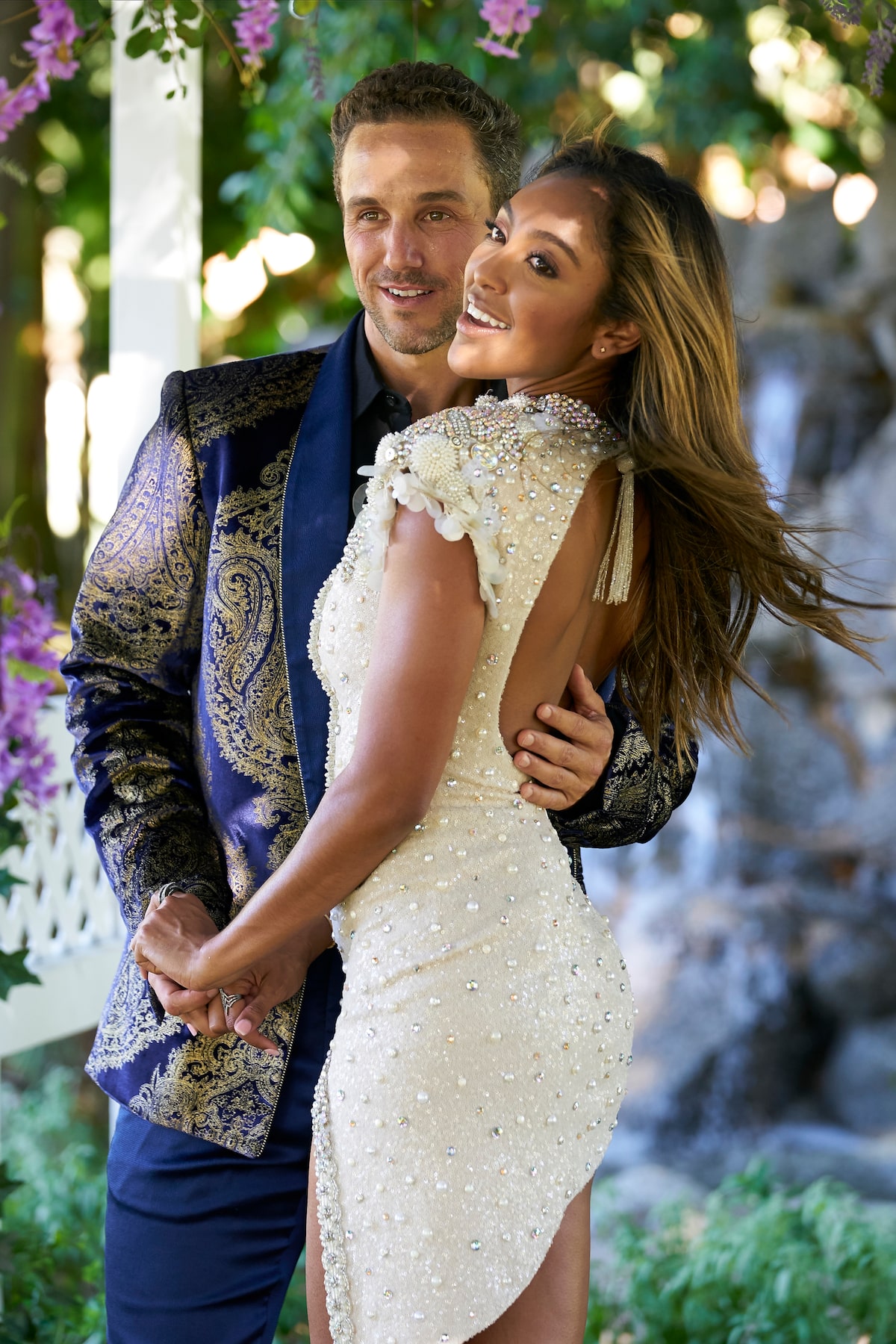
What are you most looking forward to in the rest of 2021?
I’m a summer guy. I can’t wait for summer. Obviously, just to have the warm weather up here in the north is going to be so nice. I’m looking forward to traveling. And also progressing in this relationship with Tayshia. Our relationship is really front and center for me right now. After she’s done filming for “The Bachelorette” Season 17, she’ll be coming back to New York and we’ll be continuing to work on this foundation that’s been built. It’s not normal to hide for four months, then be together for two months, then not be together for two months. There’s been some challenges, but more than that, there’s excitement about the rest of this year and moving forward with Tayshia.






